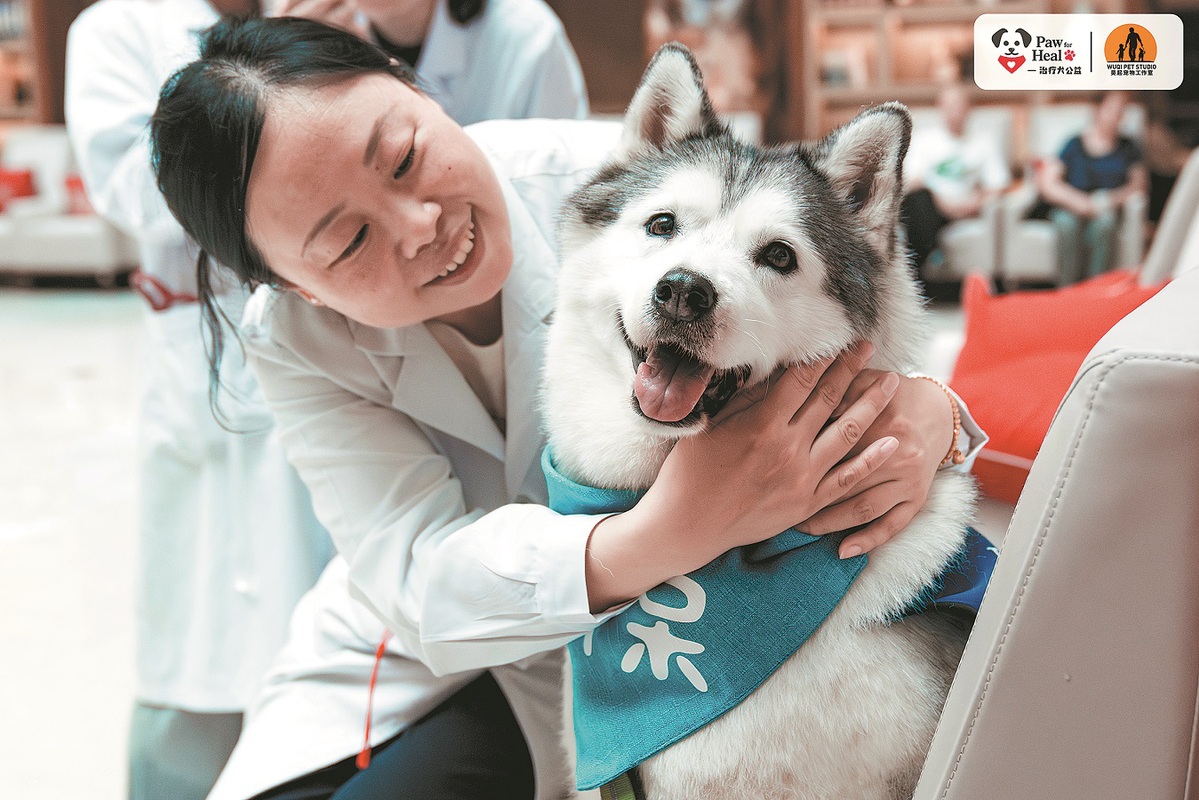When dogs become therapists
A growing army of trained animals is helping people — from autistic children to the elderly — enjoy more fulfilling lives






Well-being enhanced study
In collaboration with Peking Union Medical College Hospital in 2022, PFH conducted a comprehensive animal therapy study that focused on the elderly population. In May last year, the PFH team launched an innovative project to establish a combination of community eldercare and pet therapy services.
"Through a series of rigorous experiments and data analysis, we found that regular interaction with animals can significantly reduce feelings of loneliness and anxiety among the elderly, improving their quality of life and sense of happiness," Wu Qi said. "This outcome has not only gained widespread recognition in the scientific community but also provides strong evidence for promoting animal-assisted therapy nationwide."
During free clinics at nursing homes, Kang Lin, director of the geriatrics department at the hospital, witnessed the clear positive impact of animals on the elderly.
"Based on my years of clinical experience, physical rehabilitation is the greatest challenge because many elderly people lack the motivation to move," she said. "However, Wu Qi demonstrated that simply having them hold hula hoops for therapy dogs to leap through motivated people to get moving more."
Other tasks, such as grooming the animals or dressing them up with scarves or buttons, "can subtly enhance an elderly person's physical abilities," Kang said. "It can also impact their cognitive and emotional well-being."
She hopes to collaborate with Wu's team to standardize animal-assisted therapy for the elderly.
"We have drafted standards such as the use of large or small therapy dogs depending on the facility, duration and frequency of service and the interventions required," Kang said.
All of this serves as a way to explore best practices, which are crucial for the industry, she added.
In the future, the PFH team will focus on pet training, pet welfare, pet media, pet film and pet television advertisements.
"In 2025, we will promote adoptions through various channels to reduce the burden on organizations and help more stray animals find warm homes," Wu Qi said.
Guo Yanqi in Beijing, Guan Tong in Shenzhen and Randy Wright at China Daily contributed to this story.



















